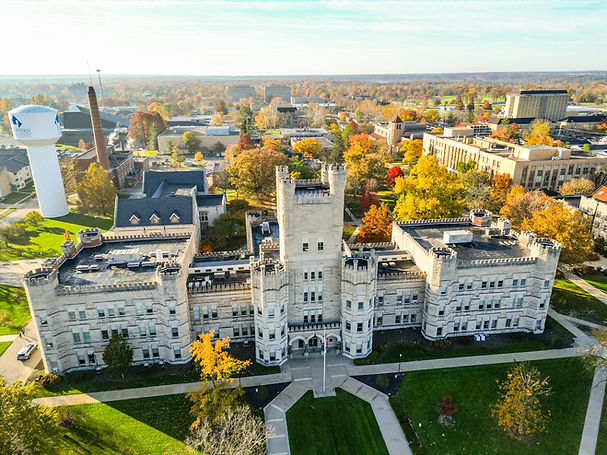JEFFREY STOWELL
Professor, Eastern Illinois University
I love to teach psychology. There's no better subject to apply to ordinary life than the scientific study of the mind and behavior. I also love to experiment with technology. When I combine these two interests, you can often find me trying something new in the classroom to see how it affects teaching and learning.

BIO
Jeffrey Stowell earned his BS and MS in Psychology from Brigham Young University and his PhD in Psychobiology from The Ohio State University. He is a Professor and the assistant chair of the Psychology Department at Eastern Illinois University (EIU) where he teaches courses in biological psychology, sensation & perception, and learning. He has published articles in Teaching of Psychology, Scholarship of Teaching and Learning in Psychology, and other teaching-related journals on the use of technology in teaching. He presents regularly at regional psychology conferences and mentors undergraduate and graduate student research. He participated in the 2008 National Conference on Undergraduate Education in Psychology: A Blueprint for the Future of the Discipline. He received the Society for Teaching of Psychology (STP) Early Career Teaching Award and served as STP’s Internet Editor for 8 years. At EIU, he has earned the honors of Professor Laureate, Distinguished Honors Faculty Award, 3-time winner of the Psi Chi Chapter Faculty of the Year Award, and the College of Sciences’ highest awards in four areas (teaching, research, service, and overall).
.jpg)
OVERVIEW OF COURSES
SENSATION & PERCEPTION
We often don’t think about the incredibly complex task that our senses have in detecting and encoding information from the environment, or the way in which we are able to organize this information into meaningful representations of the world. By the end of this course, you will have a much deeper understanding and appreciation for this ability. This course will begin with a brief history and overview of methods related to the study of sensation and perception, followed by an in-depth study of vision for the first half of the course. Next, we will analyze the role of attention in vision, followed by the examination of the physiology and perceptual experiences related to hearing, touch, smell, and taste.
PSYCHOLOGY OF LEARNING
This course begins with a brief historical overview of important figures that have influenced the scientific study of learning, then progresses to the general methods used to study human behavior and methods that are relatively unique to the study of learning. Our in-depth analysis of classical conditioning will have you salivating in class, and you will appreciate the complexity of this simple associative learning. The next major section of the course deals with operant conditioning, which is focused on how the consequences of our behavior (e.g., reinforcement and punishment) produce a change in the future probability of a behavior. After evaluating how schedules of reinforcement alter patterns of behavior, we move to the direct applications to self-control, parenting, and treatment for OCD and depression. The third major section of the course analyzes the power of observational learning. Finally, you will come to appreciate the relationships among these three types of learning and the limits imposed by biological constraints.
BIOLOGICAL PSYCHOLOGY
This course begins with important theoretical perspectives on the brain and behavior, followed by the cellular mechanisms of the nervous system. We then explore the research methods used to study the brain and get a brief exposure to the gross anatomy and development of the brain. In the second part of the course, we evaluate the role of the brain in specific behaviors including sleep, motivation, reproduction, emotion, and abnormal behavior.
PUBLISHED WORKS
RESEARCH INTERESTS
My research interests are in the areas of biological effects of stress, and use of technology in the classroom.
GET IN TOUCH
Department of Psychology
1055 Physical Sciences (map)
Charleston, IL 61920
217-581-2279

